With the explosive development of artificial intelligence (AI), the issue of ethics and responsible use of AI is a topic of particular concern to many countries, in order to limit the negative aspects of AI.
In the context of Vietnam promoting digital transformation and private sector development, AI ethics need to be designed in a practical way, supporting, rather than hindering, the process of technological development.
This is the content shared by Mr. Phan Duc Trung, Chairman of the Vietnam Blockchain Association (VBA) at the course on "AI Ethics," organized by the Blockchain Technology and Artificial Intelligence Institute (ABAII) in collaboration with the US Embassy in Ho Chi Minh City on May 15-16.
AI ethics or responsible use of AI is a topic of great interest, especially in developed countries such as the United States, Japan, South Korea, the European Union (EU)...
In the United States, several large technology companies have taken an approach and developed regulations and assessment frameworks for the responsible use of AI.
Microsoft - The leading multinational corporation in the United States has launched more than 30 responsible AI tools, including safety assessment, content filtering and reminder shield to detect and manage content attack risks.
As for IBM - a multinational computer technology company, 100% of employees participate in an annual business conduct guidance program, more than 600 suppliers are trained in technology ethics, and 100% of IBM suppliers are attracted to carry out activities on social and environmental responsibility, ethics and risk planning by 2023.
In Vietnam, the National Strategy on Research, Development and Application of Artificial Intelligence to 2030 in Decision No. 127/QD-TTg of the Prime Minister dated January 26, 2021 emphasized that training on AI ethics and policy is a pillar.
According to Mr. Phan Duc Trung, Chairman of the Vietnam Blockchain Association (VBA), building ethical principles for artificial intelligence needs to be appropriate to the practical context and scale of each organization.
Ethical guidelines should be implemented in stages, starting with the basics and adjusting as the organization grows.
VBA leaders also pointed out the difference in approach between the US and Europe, in which the US model is more flexible, allowing innovation to take place before imposing strict regulations.
“In the context of Vietnam promoting digital transformation and private sector development, AI ethics need to be designed in a practical way, supporting rather than hindering the technology development process,” Mr. Trung emphasized.
Mr. Dao Trung Thanh, Deputy Director of ABAII, also said that major technology companies in the world are currently giving different definitions of responsible use of AI.
For example, Microsoft defines responsible AI as an approach to developing, evaluating, and deploying AI systems in a safe, trustworthy, and responsible manner.
Google again considers the societal impact of the growth and scale of technologies like AI, including potential harms and benefits.
IBM has developed a set of principles to guide the design, development, deployment, and use of AI. They build trust in AI solutions that have the potential to empower organizations and their stakeholders.
However, the common point that businesses are aiming for today is to focus on building tools to ensure that AI operates ethically, does not cause harm, and benefits society.
In contact with Vietnam, Ms. Tran Vu Ha Minh, advisor on Responsible Artificial Intelligence at FPT, Founder of Humane-AI Asia, assessed that the interest, construction and application of responsible AI by Vietnamese enterprises is still limited. Therefore, courses on AI ethics are necessary, aiming to build human resources to develop responsible AI for Vietnam.
At the course, Mr. Nguyen Tran Minh Quan, Legal Director of Vietnam Blockchain Association and Mr. Jeffery Recker, CEO of Babl AI - one of the leading organizations in the United States in ensuring AI systems comply with international regulations and ethical standards, mentioned the UNESCO AI Ethics standards, OECD AI Principles, US National Standards and Technology (NIST), to the latest executive orders issued by the US President.
“While AI is being deployed globally, many organizations and businesses are struggling due to a lack of ethical and risk management preparation. This is like trying to put out a fire after it has started, rather than proactively setting up a prevention system from the beginning,” said Jeffery Recker.
On that basis, Mr. Jeffery Recker recommends that organizations proactively implement a compliance roadmap right now, including steps such as: creating an AI catalog; assessing the risks of AI tools; ensuring approval from the highest level; analyzing the current situation and legal requirements, thereby determining a suitable improvement roadmap...
At the course, students are not only provided with basic knowledge but also have the opportunity to connect interdisciplinary and cross-disciplinary, helping students from state management agencies, technology enterprises, educational organizations, research institutes, etc. to exchange and share experiences, and together build a community of responsible AI users in Vietnam.
This is an important premise for forming a network of experts, contributing to policy support and improving the capacity to respond to technological challenges in the coming time.
Previously, the “AI Ethics” course was also successfully held in Hanoi on May 12-13, with the participation of 500 students./.
Source: https://www.vietnamplus.vn/dao-tao-ve-dao-duc-va-chinh-sach-giup-thuc-day-su-dung-ai-co-trach-nhiem-post1038995.vnp



![[Photo] General Secretary To Lam attends the 80th Anniversary of the Cultural Sector's Traditional Day](https://vphoto.vietnam.vn/thumb/1200x675/vietnam/resource/IMAGE/2025/8/23/7a88e6b58502490aa153adf8f0eec2b2)



![[Photo] Prime Minister Pham Minh Chinh chairs the meeting of the Government Party Committee Standing Committee](https://vphoto.vietnam.vn/thumb/1200x675/vietnam/resource/IMAGE/2025/8/23/8e94aa3d26424d1ab1528c3e4bbacc45)







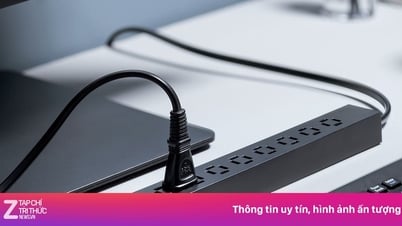







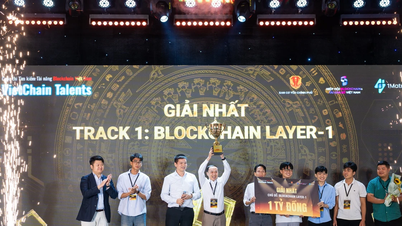

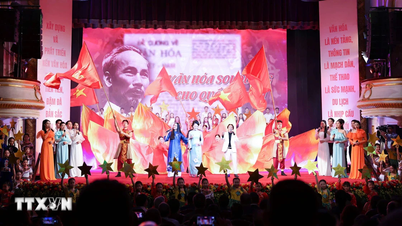
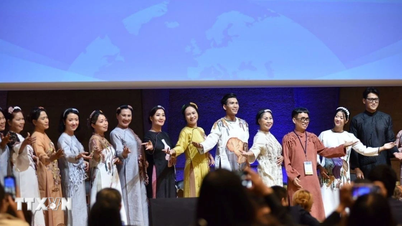















































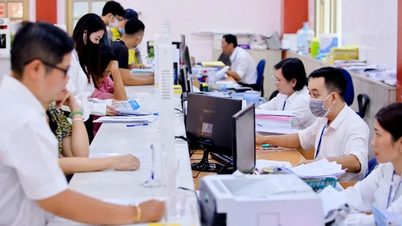


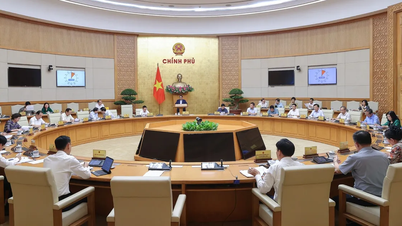

















Comment (0)